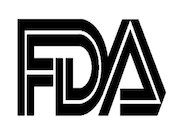Low-Vision Rehab Improves Several Elements of Visual Function
Rehabilitation has similar direct health care costs as basic low-vision services
n-3 Fatty Acids Don’t Seem to Be of Any Benefit in Dry Eye Disease
Patients randomized to n-3 supplementation did not have significantly better outcomes versus placebo
FDA Approves AI Device to Detect Diabetic Retinopathy
FDA permits marketing of novel artificial intelligence technology that can be used in primary care office
Recent Years Saw Increase in Burden of Prior Authorization
Ninety-two percent of physicians report PA-associated delays in patient access to care
FDA Approves First Auto-Darken Contact Lenses
Acuvue Oasys contact lenses with light-adaptive technology are soft contact lenses made for daily use
Considerable Differences in Burden of Disease at State Level
Increasing burden of various diseases depending on state; overall death rates declined
Suggestions Offered to Reduce Physician Frustration With EHRs
Eight suggestions include providing individualized optimization training to personalize EHR settings
Juvéderm Voluma XC Feasible for Correcting Infraorbital Hollows
High patient satisfaction and acceptable safety profile based on experience of 101 patients
Ophthalmoscopy, Telemedicine Similar in Accuracy to ID ROP
Findings seen for diagnosis of zone I disease, plus disease, and type 2 retinopathy of prematurity
Interns’ Schedule Takes Toll on Sleep, Physical Activity, Mood
Findings based on eight-month evaluation of new interns using Fitbit activity trackers



















